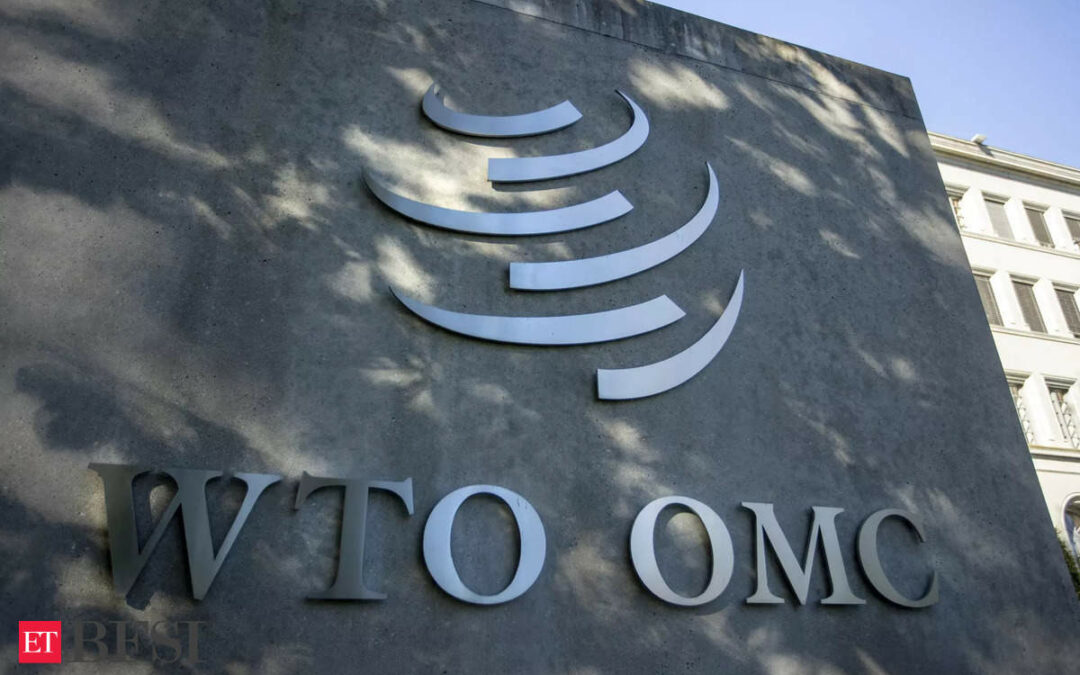Excitement ahead of next week’s 13th Ministerial Conference of the World Trade Organization is, let’s say, well under control. The question is not whether this once-important gathering will fail, only if it will fail in a way that’s even worth noticing. The prevailing sentiment seems to be, “True, this broken relic of neoliberalism is barely any longer functioning. Who cares?”
Regardless of your views on globalization, you should care. Unrepentant neoliberals like myself see the rising tide of trade protection and deliberate economic fragmentation as a grave mistake. On our view that liberal trade is good, a suitably refurbished and effective WTO is an essential component of rising global prosperity. But even dedicated advocates of tariffs, subsidies, planning, industrial policy, friend-shoring, reshoring and all the rest ought to see the need for a well-functioning WTO – because fragmentation ought to be, at the very least, orderly and cooperative rather than chaotic. And chaotic fragmentation is exactly where the world economy is heading.
The meeting in Abu Dhabi has an agenda of sorts, touching on fishing subsidies (and the attendant depletion of stocks), farming, taxes on electronic commerce and so forth. Subsets of like-minded governments might reach deals on some of these issues, enough for them to announce “success” here and there, though the current mood of mutual hostility on trade policy will make even these so-called plurilateral agreements hard to achieve. Unfortunately, the deals that most need to be struck aren’t about the minutiae of specific sectoral issues. What matters is restoring the WTO’s broader role as a forum for economic cooperation.For that to happen, the US would need to resume its leadership of the organization. Instead, the Trump and Biden administration found common cause: not so much in benign neglect as in outright hostility. The US refusal to appoint members to the organization’s appellate body has shut down the most crucial part of its system for resolving disputes. And that’s the least of it. Changes to the WTO’s rules are essential to overcome the veto that countries (notably India) often use to block agreements supported by the great majority of members. With neither of these things plausibly in prospect, cooperation on trade policy is vastly more difficult.Granted, the US can throw around its weight when it gets into trade disputes. Thanks to its scale and sophistication, it’s unlikely to be the biggest loser if global trade slows and shrinks; poorer countries will fare much less well in that event. But despite its strength, the US is still certain to underperform if the recent surge in trade skepticism prevails.
Tariffs, subsidies and “Buy America” restrictions like those built into the Inflation Reduction Act will raise domestic costs. As trading partners respond with their own tariffs, subsidies and restrictions, US exporters will lose customers. Merchandise trade in the Group of 20 economies contracted in value terms last year, according to the Organization for Economic Cooperation and Development. Policies aimed at greater self-sufficiency will likely keep shifting as these contending pressures come to bear – and this in turn will make long-term investment decisions more complicated and risky. The country’s rapidly evolving policies to build a domestic supply chain for electric vehicles are a case in point, as Bloomberg News reports in “Biden’s EV Dreams Are a Nightmare for Tesla and the US Car Industry.”
Closer economic cooperation makes vital goals of economic policy – including supply-chain resilience and the transition away from fossil fuels – easier to achieve. Indeed, they might be impossible otherwise. Neoliberals see unimpeded trade as the preeminent form of international economic cooperation. Maybe you disagree, but to be done competently, even managed trade still demands coordination.
Depending on countries that might be adversaries in future conflicts is unwise – but that does not dictate self-sufficiency. Liberal trade among the widest possible circle of friends and allies remains far more efficient. This requires a framework of rules, agreements and procedures for settling disputes. A reformed WTO could provide it.The fight against climate change is an even clearer case. Necessarily, this is a global undertaking. If countries choose policies that impose unduly heavy costs on others (as well as on themselves), the collective effort will founder, free-riding will increase and global targets will go unmet. Here too, you need a WTO-like entity to coordinate national commitments.
Countries imposing explicit or implicit taxes on carbon emissions need to apply the same policy to imports – otherwise domestic producers are at a disadvantage. For this reason, the European Union has designed a tariff system called the Carbon Border Adjustment Mechanism. The US has objections; it prefers a subsidy-based approach. The preferred formula for carbon taxes, green subsidies and clean-energy regulation is sure to vary greatly from place to place. There’s no need to impose one approach on everybody – so long as governments have a consensual system for adjudicating such measures, ruling them equivalent and assuring that they don’t discriminate against particular producers.
It doesn’t matter whether you’re a neoliberal, a believer in Bidenomics or an advocate of the world according to Trump: The WTO is in that category of things which, if they didn’t exist, would have to be invented. Right now, it still exists, though barely. The sooner the US and its trading partners recognize the need to revive and reinvent it, the better.











